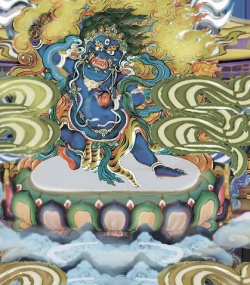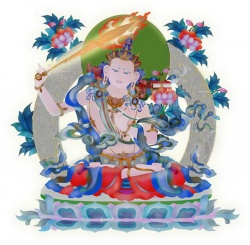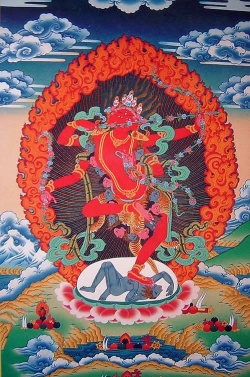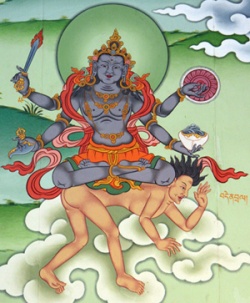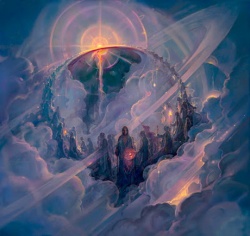Days of the Week in Chinese: Three Different Words for 'Week'
The modern Chinese names for the days of the week are based on a simple numerical sequence. The word for 'week' is followed by a number indicating the day: 'Monday' is literally 'week one', 'Tuesday' is 'week two', etc. The exception is Sunday, where 天 tiān or 日 rì, both meaning 'day', are used instead of a number (日 rì is somewhat more formal than 天 tiān).
(Note: 'Chinese' at this page refers to Mandarin. In the so-called 'dialects', such as Cantonese, Hokkienese, etc., the naming is largely the same, with the main differences being found in pronunciation. If you want to check out 'dialect' pronunciations, check out this dialect pronunciation dictionary.)
This pedestrian method of naming the days is made a little more interesting by the existence of three different words for 'week':
- The official term for 'week' is 星期 xīngqī (literally 'star period'), supposedly 'derived' from the ancient Chinese seven-day planetary cycle.
- 禮拜 lǐbài (礼拜 in its simplified form) meaning 'worship' is a common term for 'week' in everyday speech.
- 週 zhōu (周 in simplified form) meaning 'cycle' is a slightly more formal term that is gaining ground as a compact alternative to the other two.
All three can be heard in daily conversation, at times alternating in the speech of the same person. 星期 xīngqī is the 'officially correct' term that is taught to foreign learners of Chinese. It and 週 zhōu are the only forms acceptable in normal Chinese prose, in official announcements, and in other situations where 'standard Chinese' is required.
禮拜 lǐbài (we'll continue to use the traditional form of the character 禮 / 礼 below) is very common in informal conversation although much less used in writing or print. 禮拜 lǐbài is also said to be more popular in the south of China -- some southern dialects use only the cognate of 禮拜 lǐbài -- and 星期 xīngqī is said to be more popular in the north. Interestingly, however, Cantonese speakers speaking Mandarin may consciously use 星期 xīngqī as the 'correct' Mandarin form, in preference to the 禮拜 lǐbài cognate that is more common in their own dialect.
Using 星期 xīngqī , the days of the week in Chinese are:
| Sunday | Monday | Tuesday | Wednesday | Thursday | Friday | Saturday | |
| Ch orthography | 星期一 | 星期二 | 星期三 | 星期四 | 星期五 | 星期六 | |
| Mandarin pronunciation | xīngqīrì xīngqītiān |
xīngqīyī | xīngqī'èr | xīngqīsān | xīngqīsì | xīngqīwǔ | xīngqīliù |
| Rough meaning | 'star period day' |
'star period one' | 'star period two' | 'star period three' | 'star period four' | 'star period five' | 'star period six' |
| Sunday | Monday | Tuesday | Wednesday | Thursday | Friday | Saturday | |
| Ch orthography (traditional) | 禮拜日 or |
禮拜一 | 禮拜二 | 禮拜三 | 禮拜四 | 禮拜五 | 禮拜六 |
| Ch orthography (simplified) | 礼拜日 |
礼拜一 | 礼拜二 | 礼拜三 | 礼拜四 | 礼拜五 | 礼拜六 |
| Mandarin pronunciation | lǐbàirì lǐbàitiān |
lǐbàiyī | lǐbài'èr | lǐbàisān | lǐbàisì | lǐbàiwǔ | lǐbàiliù |
| Rough meaning | 'worship day' | 'worship one' | 'worship two' | 'worship three' | 'worship four' | 'worship five' | 'worship six' |
| Sunday | Monday | Tuesday | Wednesday | Thursday | Friday | Saturday | |
| Ch orthography (traditional) | 週日 | 週二 | 週三 | 週四 | 週五 | 週六 | |
| Ch orthography (simplified) | 周日 | 周一 | 周二 | 周三 | 周四 | 周五 | 周六 |
| Mandarin pronunciation | zhōurì | zhōuyī | zhōu'èr | zhōusān | zhōusì | zhōuwǔ | zhōuliù |
| Rough meaning | 'cycle day' | 'cycle one' | 'cycle two' | 'cycle three' | 'cycle four' | 'cycle five' | 'cycle six' |
While most days of the week have three possible names, Sunday has five. What's more, 天 tiān or 日 rì is sometimes dropped, leaving 星期 xīngqī and 禮拜 lǐbài to mean 'Sunday' by themselves. That makes a total of seven words for 'Sunday'!
In addition to these three current naming styles, historically, Chinese has also had two other systems of naming.
The first is the original planetary system that is the basis for naming in most languages. Although the Western-style week is a modern phenomenon in China, the planetary names for the days of the week have been known since antiquity. The nomenclature of the seven planets -- naming of the days after the Sun, the Moon, Mars, Mercury, Jupiter, Venus, and Saturn -- came overland from the West in the first millennium AD, resulting in a system of translated names. (The story of how they came to China and then Japan is told at Japanese days of the week.) The Chinese names, based on the 'seven luminaries' or 七曜 qīyào, went as follows:
| Sunday | Monday | Tuesday | Wednesday | Thursday | Friday | Saturday | |
| Orthography | 日曜日 | 月曜日 | 火曜日 | 水曜日 | 木曜日 | 金曜日 | 土曜日 |
| Mandarin pronunciation | rìyào-rì | yuèyào-rì | huǒyào-rì | shuǐyào-rì | mùyào-rì | jīnyào-rì | tǔyào-rì |
These names largely disappeared in China but were never forgotten in Japan, where they were eventually revived for use in the modern era.
A second system is a numbering system used at one stage by Chinese Catholics. This follows the favoured naming of the Catholic church. (I have been unable to confirm whether this nomenclature dates from the time the Jesuits were active in China in the 16-18th centuries or is a later development).
| Sunday | Monday | Tuesday | Wednesday | Thursday | Friday | Saturday | |
| Ch. orthography | 主日 | 瞻禮二 | 瞻禮三 | 瞻禮四 | width="13%"瞻禮五<td width="13%" | 瞻禮六 | 瞻禮七 | |
| Mandarin pronunciation | zhǔrì | zhānlǐ-èr | zhānlǐ-sān | zhānlǐ-sì | zhānlǐ-wǔ | zhānlǐ-liù | zhānlǐ-qī |
| Meaning | Lord day | Observe-ritual two | Observe-ritual three | Observe-ritual four | Observe-ritual five | Observe-ritual six | Observe-ritual seven |
These Chinese Catholic names are based on the word 瞻禮 zhānlǐ ('observe-ritual'). In Chinese, 瞻禮 zhānlǐ is used both for observances of the Buddhist religion and for 'feasts' of the Catholic calendar, such as the Assumption, Easter, the Pentecost, etc.
This curious usage is actually a faithful reflection of the liturgical week of the Roman Catholic Church. The liturgical week takes Sunday as the 'Lord's Day' and uses the term feria for the weekdays, Monday being the second feria, Tuesday the third, Wednesday the fourth, etc. The term feria originally meant 'free days' in Latin, but later came to mean 'feast days'. Then, for some unknown reason, the term feria came to be applied to the days of the week, even though these are not actually 'feast days' at all (Note 11: The feria).
So how did modern Chinese come to settle on the current names, and why are there three alternatives still in use?
Before they adopted the Western-style week, the Chinese originally used a ten-day cycle known as a 旬 xún in ordering their daily lives and activities. Although the Christian week was not unknown (it was known, for instance, from contact with the Jesuits in the 16th-18th centuries), the seven-day week as we know it first became widely familiar in the 19th century with the coming of traders and missionaries from Western powers. It was finally officially adopted by the Chinese government in 1912, after the fall of the last Imperial dynasty.
Although the Chinese of the 19th century, with their prodigious written tradition, still knew of the 'seven luminaries' nomenclature, it never fully caught on in modern Chinese as a way of naming the days of the Western-style week. Allegedly, the outstanding scholar 袁嘉谷 Yuán Jiāgǔ, who is remembered for setting up a government department to supervise terminology in textbooks in 1909, decided against them because they were tongue-twisters in Mandarin, especially names like 日曜日 rì yào rì. The planetary names enjoyed some currency during the period of Japanese aggression against China, having been attested to in school timetables of the 1920s or 1930s. However, they never came into wide enough usage to supplant the alternatives, and they suffered from a fatal flaw -- they had become too closely associated with Japanese imperialism to be palatable to most Chinese.
The planetary names also faced stiff competition from the popular local system of naming had arisen spontaneously in 19th-century China following contact with Western missionaries (Note 8: Christian missionaries in China).
The term 禮拜 lǐbài in the sense of 'week' first appeared in writing in 1828 and is likely of dialectal origin. A dictionary of Cantonese colloquialisms from that year, entitled 廣東省土話字彙 Guǎngdōng-shěng Tǔhuà Zìhuì, gave 禮拜 lǐbài as the equivalent of 'week' in English.
The word 禮拜 lǐbài originally referred to worship in the Christian and Muslim faiths. Its extension to mean 'week' seems to be based on the Christian practice of worship every seven days. However, the specific mechanism by which this extension of meaning came about, and how the system of numbering the individual days developed, is not clear. Quite possibly the system started with Sunday as the 'day of worship' (禮拜天 lǐbàitiān), after which the other days were then numbered off in sequence (Monday = 'day of worship plus one', Tuesday = 'day of worship plus two', etc').
At any rate, 禮拜 lǐbài remained the most common word for 'week' right up until the founding of the People's Republic of China in 1949. However, despite its popularity, 禮拜 lǐbài failed to find favour with literate Chinese. Not only did the word have obvious associations with Western imperialism and foreign religion, but the plebeian use of the term 'worship' to mean 'week' was possibly intellectually and culturally unacceptable to the literate elite, whose focus was on classical Chinese and the written word. Since 1949 the use of 禮拜 lǐbài has declined. Although still widely used in popular speech, it tends to be avoided in writing both on the Mainland and on Taiwan.
The officially preferred word for 'week', 星期 xīngqī ('star period'), was first recorded in print in 1889. This name alludes to the 'seven luminaries' mentioned above, which were known as 'stars' to the ancients. Modern Chinese sources try to make out that 星期 xīngqī is a direct outgrowth of the seven luminaries (七曜 qīyào) of antiquity, but in ancient times the word 星期 xīngqī actually had nothing to do with the seven luminaries. It referred to the 'Star Festival', China's equivalent of Valentine's Day, which falls on the seventh day of the seventh lunar month. The use of 星期 xīngqī to mean 'week' is thus a modern innovation from the latter part of the 19th century ([['Xingqi' as a Modern Coinage}Note 10: Is 'xingqi' a modern coinage?]]) .
Unlike 禮拜 lǐbài, however, 星期 xīngqī soon found official favour. The story is that it became the officially approved term because it was supported by 袁嘉谷 Yuán Jiāgǔ. Significantly, the government gazette of 10 February 1912 that instituted the use of the week in China used the word 星期 xīngqī. The word went on to gradually gain in popularity, especially after the establishment of the People's Republic of China in 1949. What is interesting is that the adoption of 星期 xīngqī is not a radical change; it simply substitutes one word for 'week' with another. The original numbering system of 禮拜 lǐbài is retained intact, and it even substitutes the meaningless term 星期日 xīngqīrì or 星期天 xīngqītiān ('star cycle day') for the meaningful term 禮拜天 lǐbàitiān ('day of worship').
The word 星期 xīngqī thus bears all the marks of an ingenious compromise, being politically correct and exploiting the advantages of rival names while avoiding their disadvantages. It allows the Chinese to refer to the ancient tradition of the 'seven luminaries' without adopting the planetary names used by the Japanese. It does away with the foreign and religious connotations of 禮拜 lǐbài but retains the simplicity of numbering the days. It even manages to keep Sunday, the official secular day of rest, separate from the other days of the week without implying that it is a day of worship!
The other Chinese word for 'week', 週 / 周 zhōu, is a relative latecomer. It appears to have entered Chinese from Japanese, probably around the turn of the 20th century. The earliest written references are from 1901 and 1903. The Japanese word 週 shū 'week' is itself of Chinese origin, with the original meaning being 'cycle'. The word fits quite naturally into Chinese and people are now completely unconscious of its Japanese pedigree. One reason for its growing popularity, especially among the educated urban classes, is the fact that it consists of only one syllable. With 週 / 周 zhōu, each day of the week becomes a comfortable two-character compound of the type favoured by the Chinese.
One unresolved question is why the Chinese adopted the numbering system that they did, i.e., why was Monday chosen as 'Day One'? Was it due to outside precedent of some kind, such as the Catholic church's system of numbering the days of the week (see above), or was it a purely local development by the Chinese themselves? In this connection, it is interesting that, at least in the 1930s, it was common practice to place 禮拜天 lǐbàitiān at the end of the week, i.e., as the seventh day. However, without more detailed information on the origins of the current system, which I do not have, it is impossible to answer this question.
I would particularly like to acknowledge my debt to The Origin of names of days of the week in Chinese (in Chinese) for allowing me to add considerable additional information to the above account.
